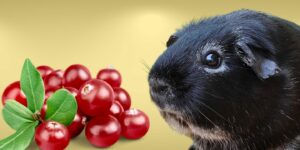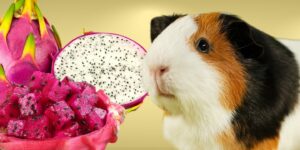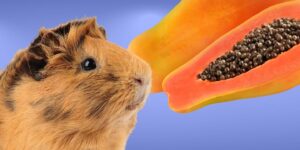The short answer is yes; Guinea pigs can eat oranges. However, like all fruits, oranges should only be fed to Guinea pigs in moderation and as part of a balanced diet. Oranges are beneficial for Guinea pigs as they provide a good source of vitamin C, which is essential for their health.
Nutritional Value of Oranges
Vitamin C content
Oranges are known for their high vitamin C content. A 100g serving of orange provides about 53mg of vitamin C, which is more than enough to meet the daily needs of a Guinea pig.
Other vitamins and minerals
In addition to vitamin C, oranges also contain small amounts of other essential vitamins and minerals, such as vitamin A, B vitamins, calcium, and potassium.
Sugar content
Like most fruits, oranges also contain sugars. Excessive sugar intake can be harmful to Guinea pigs, so it's essential to feed them oranges in moderation.
Benefits of Oranges for Guinea Pigs
Boosting immune system
Vitamin C plays a vital role in maintaining a healthy immune system, and oranges can help provide that boost for your Guinea pig.
Prevention of scurvy
As mentioned earlier, Guinea pigs cannot produce their own vitamin C, and a deficiency can lead to scurvy. Oranges can help prevent this condition.
Antioxidant properties
Vitamin C is a powerful antioxidant, which can help protect cells from damage caused by free radicals, thereby promoting overall health in Guinea pigs.
Potential Risks of Feeding Oranges to Guinea Pigs
High sugar content
The high sugar content in oranges can potentially cause obesity and other health issues in Guinea pigs if fed excessively.
Digestive issues
Oranges are acidic, and too much can lead to an upset stomach and diarrhea. It's essential to feed your Guinea pig small amounts to avoid these issues.
Allergic reactions
Though rare, some Guinea pigs may have an allergic reaction to oranges, causing itching or swelling. Always monitor your pet closely when introducing new foods.
How to Properly Prepare Oranges for Guinea Pigs
Choosing the right oranges
Pick fresh, ripe, and preferably organic oranges to avoid potential pesticide exposure.
Washing and cleaning
Wash the orange thoroughly, removing dirt and any residues.
Removing seeds and excessive peel
Remove the seeds and only provide a small piece of peel, as an excessive amount may cause digestive issues.
Recommended Serving Size and Frequency
Portion size
A small slice of orange or a piece no larger than their paw size is an appropriate portion for a Guinea pig.
Frequency of feeding
It's recommended to offer oranges to Guinea pigs about once or twice a week, as part of a balanced diet.
Alternatives to Oranges for Vitamin C
Other fruit options
Other fruit options rich in vitamin C include kiwi, strawberries, and pineapple.
Vegetables rich in vitamin C
Bell peppers, broccoli, and kale are excellent vegetable sources of vitamin C for Guinea pigs.
Vitamin C supplements
In some cases, a vitamin C supplement may be recommended by a veterinarian for optimal health.
Monitoring Your Guinea Pig's Health
Signs of a balanced diet
A healthy Guinea pig should have a shiny coat, bright eyes, and a normal weight.
Symptoms of scurvy
Lethargy, weakness, and poor skin and hair quality are potential signs of scurvy in Guinea pigs.
Indications of digestive issues or allergies
Monitor your Guinea pig for any signs of diarrhea, vomiting, itching, or swelling after consuming oranges or any other new foods.
Frequently Asked Questions
Can Guinea pigs eat orange peels?
Yes, Guinea pigs can eat small pieces of orange peel, as long as they are cleaned and free of pesticides.
Can Guinea pigs drink orange juice?
It's not recommended to offer orange juice to Guinea pigs, as it can be too high in sugar and may cause digestive issues.
What other fruits can Guinea pigs eat?
Guinea pigs can enjoy various fruits, such as apples, pears, melon, and berries, in moderation.
Conclusion
In conclusion, including oranges in your Guinea pig's diet can benefit their health, as long as it's fed in moderation and as part of a balanced diet. Always monitor your pet for any signs of adverse reactions or health issues and consult a veterinarian if needed. Responsible pet care and close attention to your pet's dietary needs will help ensure a long and healthy life for your Guinea pig.











